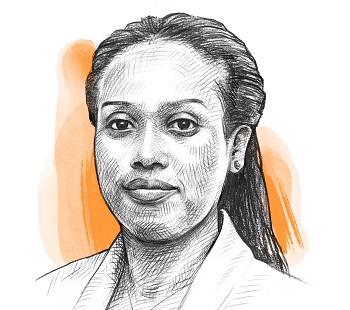AFTER 2: Supporting technical training and employment in Rwanda
Objective
-
€6.7mBUDGET
-
01/03/2023PROJECT START
-
60 moisDURATION
Technical and vocational training, a key driver for the development of skills and entrepreneurship
In an effort to improve youth employment, Rwanda is focusing on the development of skills and entrepreneurship. The Government of Rwanda has placed the development of human capital at the centre of its national strategy, with a key role played by technical and vocational training.
Rwanda’s aim is for 60% of young people to benefit from technical and vocational training in their studies, and thereby create a labour force that matches the needs of a booming economy.
AFTER 2 project: strengthening training provision to improve employability
In this context, Agence Française de Développement and LuxDev have mobilised Expertise France to assist the Rwandan Ministry of Education through the two agencies, Rwanda Polytechnic and Rwanda TVET Board.
The AFTER 2 project aims to improve the quality of technical and vocational training in Rwanda to make it more attractive to young people. Its objective is to facilitate the integration of young graduates into the labour market.
The project activities will aim to support four training centres in the districts of Nyamagabe and Karongi, and strengthen the capacities of two Rwandan vocational training institutions, Rwanda Polytechnic and Rwanda TVET Board. It is the second phase of the project to support vocational training, building on the success of the first component between 2020 and 2023.
Find out more about the first phase of the AFTER project
A comprehensive consideration of training issues in Rwanda
The AFTER 2 project is based on four lines of action, with the aim of addressing the main training issues in Rwanda.
In addition, two other themes are taken into account in the activities in a horizontal manner, with the aim of:
• Developing more inclusive vocational training programmes
• Integrating skills for the energy transition into the training programmes
The four lines of action are structured as follows:
1. Upgrading the campuses of training centres to make them more modern and attractive for young people
A set of facilities will be built or renovated to improve learning conditions for young people. This concerns classrooms and technical facilities, but also living conditions, with the construction of new student accommodation and sports areas.
2. Improving the quality of the training provision of centres
A range of activities will be organised to improve training provision, by gearing it more towards market needs: revision of training reference bases involving the private sector, technical and pedagogical training for trainers, digitalisation of training content. Activities are also planned to strengthen teaching in French and English.
3. Building closer ties between vocational training operators and the private sector, to promote schemes for employment and entrepreneurship
To promote collaboration between the training centres and the private sector, and thereby facilitate the occupational integration of young people after their training, the project will support the development of partnerships with the private sector, which will be promoted, for example, through events with the students. The capacities of the teams in the training centres responsible for giving guidance to young people and training in entrepreneurship will also be strengthened.
4. Strengthening the capacities of Rwanda Polytechnic and Rwanda TVET Board as vocational training operators
To ensure the sustainability of the activities and facilitate the project implementation, capacity building activities are planned for Rwanda Polytechnic and Rwanda TVET Board. They will work on strengthening the human resources of the organisations and on their strategic plans for the coming years.
The project will also support the development of Rwanda’s new National Vocational Training Strategy.


